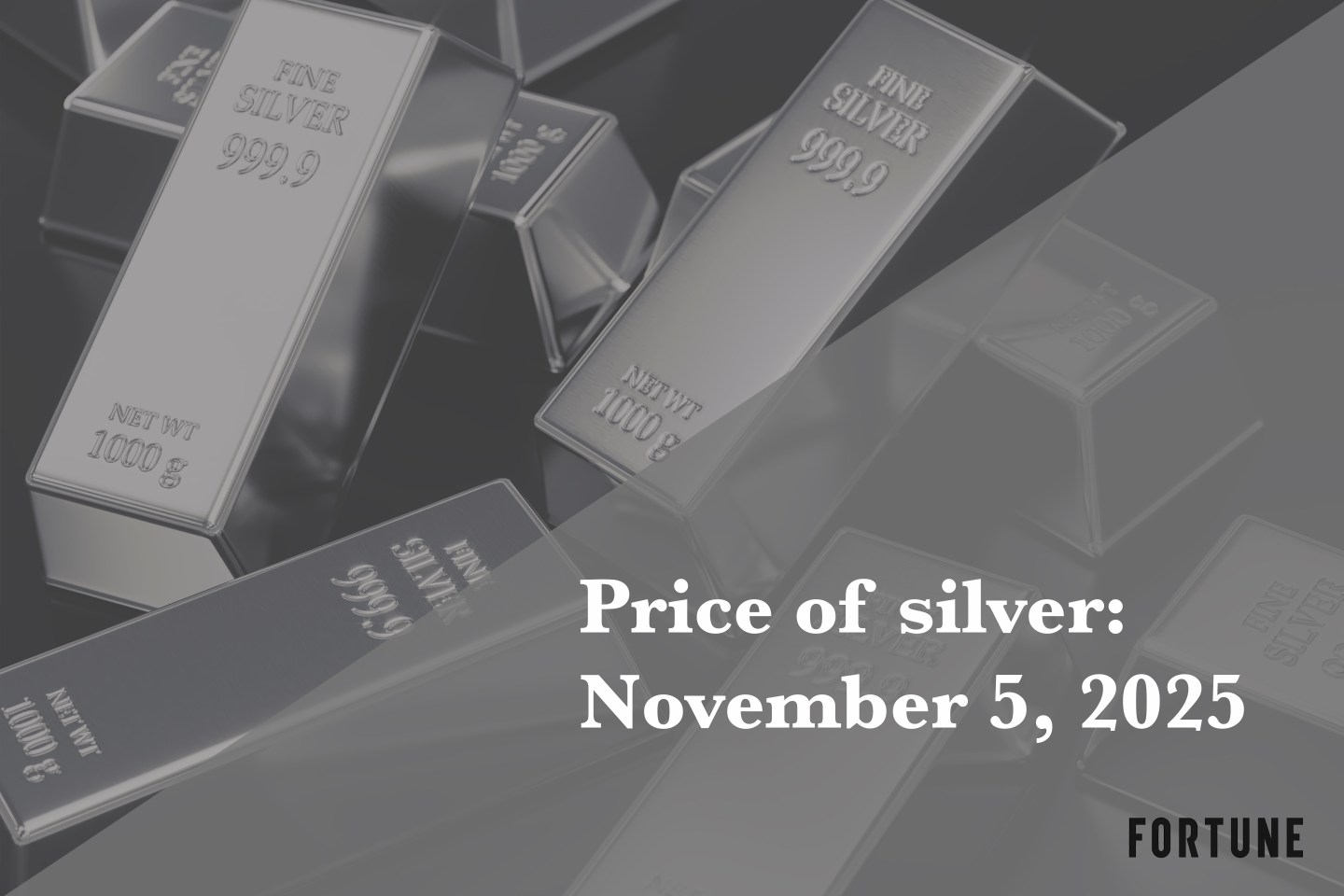As of 8:15 a.m. Eastern Time on November 5, 2025, silver traded at $47.71 per ounce. That’s down $0.09 from yesterday at this hour—but represents a gain of more than $15 over the past 12 months.
Check Out Our Daily Rates Reports
- Discover the highest high-yield savings rates, up to 5% for January 21, 2026.
- Discover the highest CD rates, up to 4.18% for January 21, 2026.
- Discover the best personal loan rates for January 21, 2026.
- Discover the current mortgage rates for January 21, 2026.
- Discover current refi mortgage rates report for January 21, 2026.
- Discover current ARM mortgage rates report for January 21, 2026.
- Discover the current price of gold for January 21, 2026.
- Discover the current price of silver for January 21, 2026.
- Discover the current price of platinum for January 21, 2026.
Historical silver performance
Silver is not typically a high-growth play. Historically, it trails other investment options, like stocks. From 1921 onward, silver has underperformed the S&P 500 by about 96%. That means an equal sum invested in silver and stocks back then would now be worth 96% less in silver holdings than stocks.
Instead, silver is prized for its stability and its power to hedge against inflation. Often dubbed a “store of value,” it tends to sustain purchasing power when inflation climbs.
Compared with gold, silver prices generally swing more sharply due to industrial demand—solar equipment, healthcare devices, and more—whereas gold is almost purely a safe-haven asset.
What does “spot silver” mean?
“Spot silver” refers to the live market rate at which silver can be bought or sold instantly. That said, real-world buyers usually pay a premium over spot for markups, shipping, insurance, and other fees.
The spot price serves as a gauge of immediate market demand: a higher spot price means stronger buying interest.
What is “price spread” in silver trading?
The term “price spread” describes the difference between the buying (ask) and selling (bid) prices for silver. Here’s how those terms are defined.
- Ask price: the cost to purchase silver.
- Bid price: the amount you receive when you sell silver.
A narrower spread indicates high demand.
How to invest in silver
Silver exposure can be achieved through physical ownership or via silver-backed exchange-traded funds (ETFs). ETFs let you own a stake in a fund that holds silver, sparing you storage and insurance responsibilities.
Key silver investment options include:
- Bullion bars and rounds. These are sold by weight and purity
- Government-minted silver coins. Iconic examples include American Silver Eagles and Canada’s Silver Maple Leafs, which often trade at premiums for their rarity and backing.
- Silver jewelry. Custom pieces that fetch prices above equal-purity bullion.
- Silver mining equities. Stocks in companies extracting silver, offering a sort of indirect investment in silver.
On exchanges, bullion and coins must meet a minimum 99.9% purity. Lower-purity silver generally falls into collectible or industrial categories. Our guide to the best silver IRA companies provide more information on how to shrewdly invest in silver (and other precious metals).
Is it a good time to invest in silver?
Silver has surged nearly 25% in 2025, hitting its highest levels in over a decade.
Deciding whether to invest now depends on your unique attitude toward the market. If inflation is top of mind, adding precious metals can be prudent. Or, if you foresee rising industrial applications—such as electronics—demand could potentially push prices even higher.
Current precious metals prices as of 8:15 a.m. ET on November 5, 2025
Gold remains the benchmark metal, while platinum and palladium exhibit volatility patterns similar to silver due to smaller market caps. Gold’s larger market makes it comparatively stable.
The takeaway
With economic volatility persistent in the current market, precious metals deserve at least a quick look. Silver’s 2025 performance has outshined gold’s, and many experts forecast the likelihood of seeing further upside, potentially pushing silver to record levels.
Silver’s lower entry cost compared with gold also makes it an accessible hedge. Whether through physical bullion, ETFs, or mining stocks, you can position yourself to benefit from anticipated silver demand.
Frequently asked questions
What percentage of my portfolio should I allocate to silver?
Many advisors suggest allocating no more than between 10% and 15% to silver, keeping total precious metal holdings under 20%.
Can silver be held in an IRA?
Yes—IRA-eligible silver coins and bars (99.9% pure) stored with an IRS-approved custodian qualify. Coins with lower silver content, such as pre-1965 U.S. Coins that often have around 90% purity and are known as constitutional silver, aren’t permitted. But of course, silver coins and jewelry that doesn’t hit the 99.9% purity level can still be collected or worn outside of retirement accounts.
What’s driving silver prices in 2025?
Silver’s ascent this year reflects tight supplies and robust demand from both industrial users and investors.














